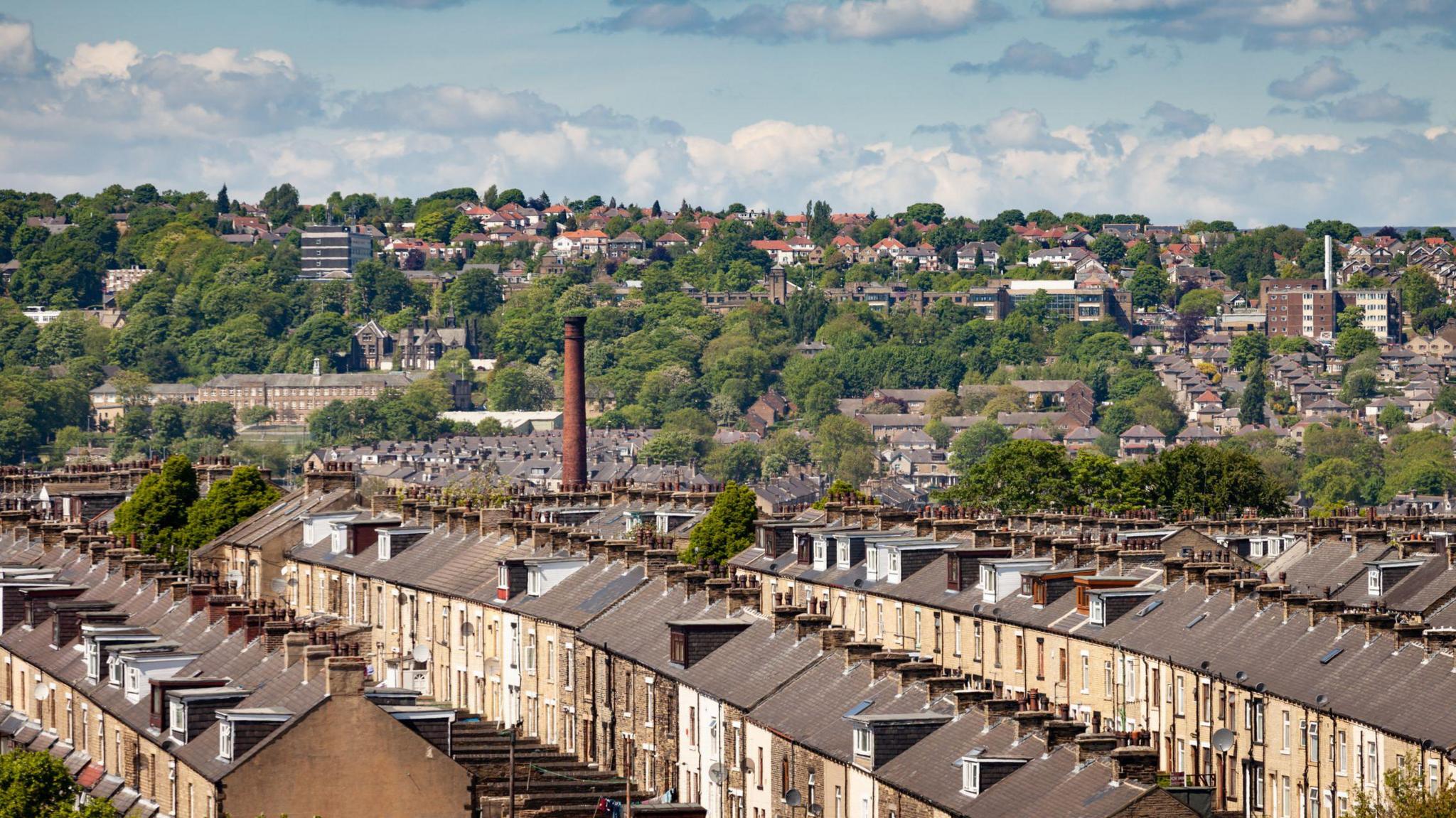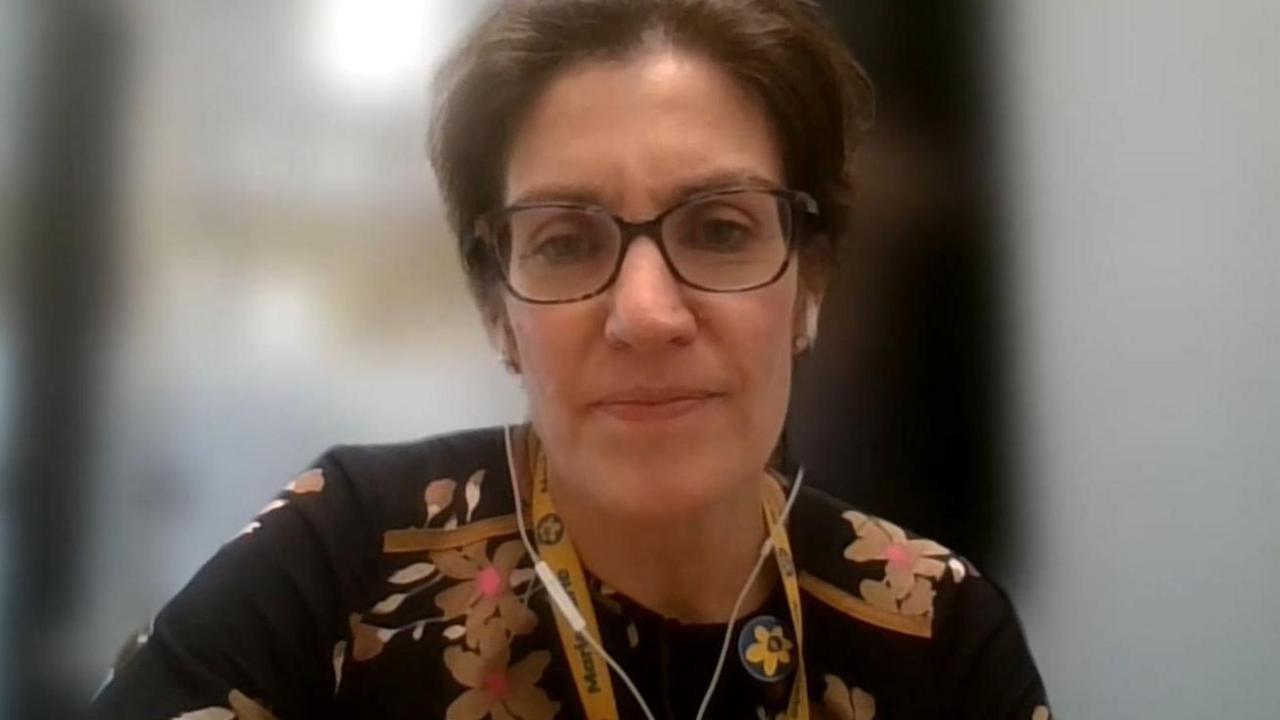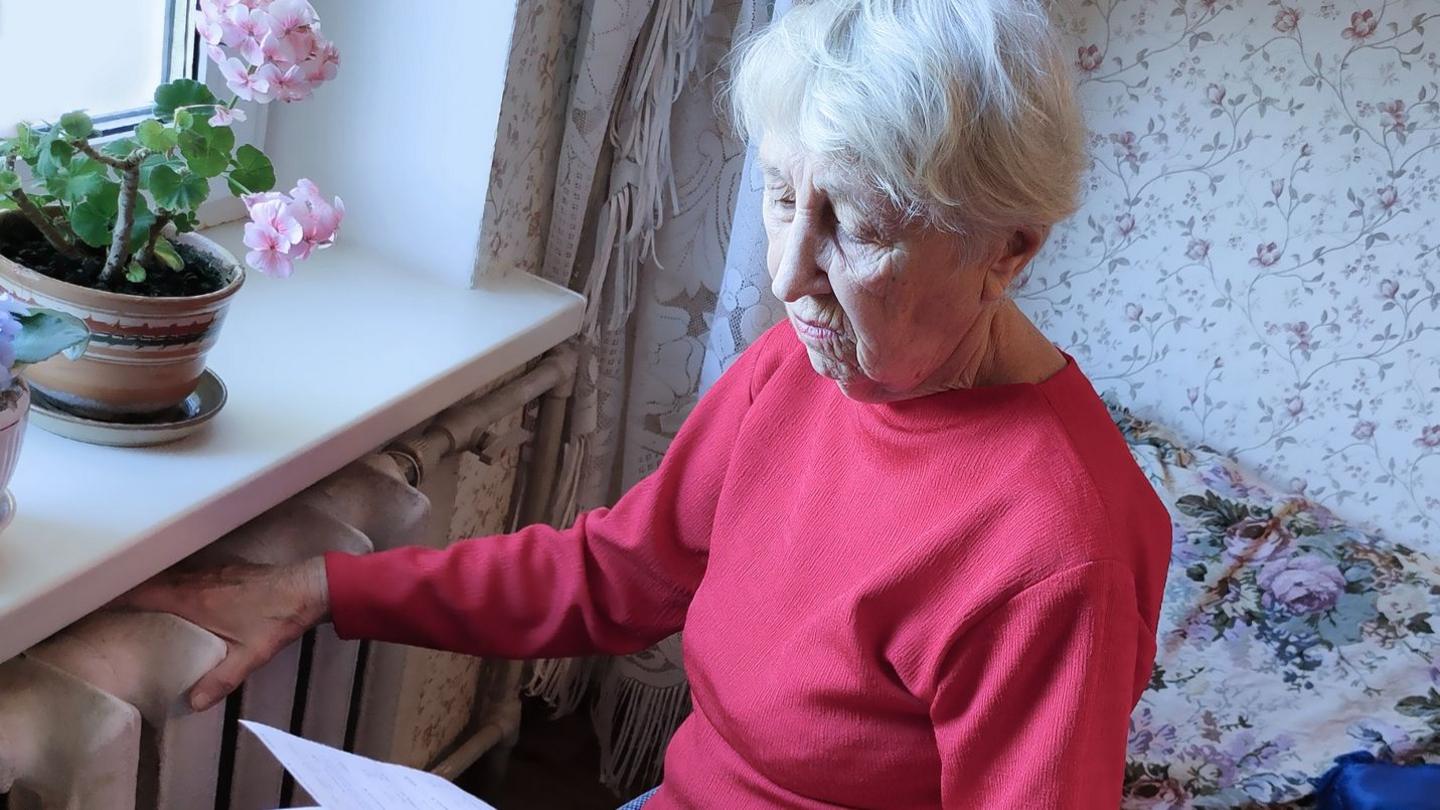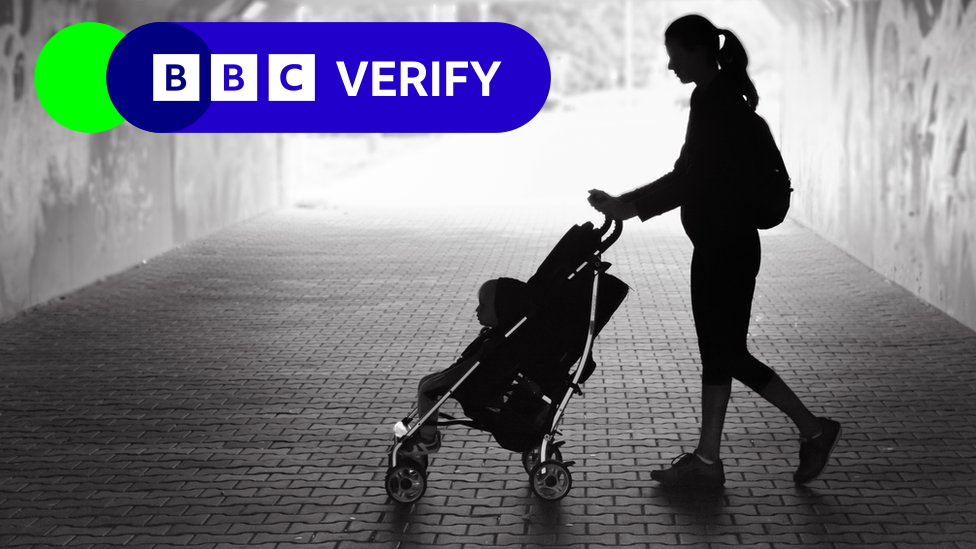Third of working age people die in poverty - report

Bradford has "many deprived communities", according to Marie Curie charity's Sarah Holmes
- Published
More than a third of working age people in Bradford were living in poverty when they died, according to a report by Marie Curie.
The charity, which campaigns around end of life care, said its figures suggested the city was among the 20 most poverty-stricken council areas in the UK.
According to its Dying in Poverty 2024 report, 28.9% of pensioners who died in 2023 in Bradford were also in poverty, the fourth highest area in the country.
The government said there were special rules in place to "ensure those nearing the end of life can claim the support they deserve in a timely manner".
Sarah Holmes, chief medical officer at Marie Curie, said the findings of the report, showed Bradford was a community "where people face a lot of financial challenges".
Ms Holmes, who is based in Bradford, said: "Bradford is a great place.
"It's rich in diversity of heritage and culture, but sadly it's also rich in diversity from a financial perspective as well.
"It has many deprived communities."
She said that the city's economic history, including the demise of the woollen industry, had contributed to this.

Sarah Holmes said there are "financial challenges" for many in Bradford
According to the report, external, based on research by Loughborough University, Middlesbrough had the highest number of working age people dying in poverty (44.5%) while Bradford was ranked 16th (35.3%) with Hull in 15th (35.4%).
It said that across the UK 110,000 people died in poverty in 2023, up from 93,000 in 2019.
It also found that women and people from minority ethnic backgrounds were particularly affected.
According to figures from Bradford Council, external, 51% of people living in the city identified as women, while 56.7% of the population identified as White British.
Phil Mawhinney, Age UK's policy manager, said: "Poverty in later life definitely reflects people's experiences in working life.
"People have to take time off in work and they are often women because they are more likely to take time out of work to look after children or family.
"When people take time out of work they don't build up as much of a pension record."
Marie Curie is calling on the government to guarantee working age people with less than 12 months to live a pension-level income and introduce a social tariff to cut energy bills for people at the end of life.
In the recent Budget the government announced that winter fuel payments would only be made to those getting pension credit or other means-tested help.
It also announced a rise in the national minimum wage and a hike in National Insurance contributions for employers
A government spokesperson said: "No one should suffer financial hardship because of a health condition - that’s why special rules are in place to ensure those nearing the end of life can claim the support they deserve in a timely manner.
They added: "Alongside this, we are extending the Household Support Fund, uprating benefits and the State Pension, while over one million households are set to be lifted out of fuel poverty through the biggest potential boost to home energy standards in history."
Listen to highlights from West Yorkshire on BBC Sounds, catch up with the latest episode of Look North or tell us a story you think we should be covering here, external.
- Published16 September

- Published21 March 2024
